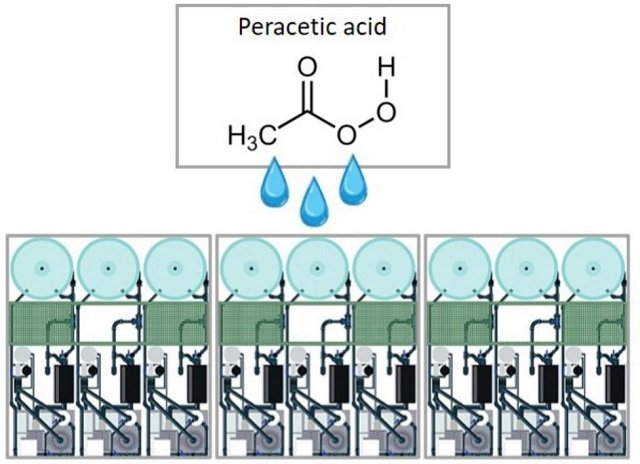
The aquaculture industry faces a challenge: creating sustainable feeds with minimal reliance on fishmeal. To address this issue, researchers have been exploring alternative feed formulations and supplements.
A recent study published in Fishes, a peer-reviewed scientific journal, investigated the effects of the New Technology Promoter Binder (NTPB) on the growth, feed efficiency, and health status of Tilapia sp. when fed plant-based diets containing zero or minimal fishmeal.
NTPB: A Game Changer for Tilapia Growth
The New Technology Promoter Binder (NTPB), a derivative of guanidinoacetic acid (GAA), has gained attention for its potential to enhance growth and performance in various animal species. GAA is a naturally occurring amino acid derivative that serves as a direct precursor to creatine. Creatine is a key component in the energy metabolism of muscle and brain tissue in vertebrates.
In the context of tilapia aquaculture, supplementation with NTPB has shown promising results. Studies have demonstrated that incorporating NTPB into tilapia diets can:
- Improve growth performance: NTPB has been shown to increase growth rates and feed efficiency in tilapia.
- Enhance muscle quality: Adding NTPB can lead to better muscle firmness and amino acid content, resulting in a higher-quality product.
- Support overall health: NTPB has been found to be safe for tilapia, with no adverse effects on blood parameters or organ health.
Plant-Based Diets with Minimal Fishmeal Using NTPB
Recent research has explored the feasibility of reducing or eliminating fishmeal from tilapia diets. While some studies suggest a minimum of 5% fishmeal to provide unidentified growth factors, careful formulation with alternative protein sources and nutritional supplements, like NTPB, can mitigate this need.
By incorporating NTPB into plant-based diets, the aquaculture industry can achieve sustainable and cost-effective tilapia production while maintaining or even improving growth performance and product quality. This approach not only addresses environmental concerns associated with traditional fishmeal-based diets but also offers economic benefits to producers.
The Research
The study aimed to evaluate the effects of NTPB supplementation in four different plant-based diet formulations, with varying levels of fishmeal and NTPB (0, 0.6, and 1.2 mg/kg of feed).
A research team from Universitas Brawijaya and Numega Nutrition Pte., Ltd., formulated plant-based diets with minimal or no fishmeal content and different NTPB supplementation levels.
Positive Effects on Growth and Feed Efficiency
The study found that tilapia fed diets containing NTPB exhibited better growth performance compared to those without the supplement. This improvement was observed in both diets with minimal fishmeal and those entirely plant-based. Additionally, tilapia fed NTPB-enhanced diets showed improved feed efficiency, meaning they converted their feed into body mass more effectively.
Stay Always Informed
Join our communities to instantly receive the most important news, reports, and analysis from the aquaculture industry.
Safety and Consumer Benefits
Importantly, the study confirmed the safety of NTPB for tilapia. Blood analyses revealed normal levels of glucose, urea, and creatinine, indicating healthy fish. Furthermore, researchers found no significant differences in the internal organ health of fish fed different diets.
An additional benefit of NTPB supplementation was an increase in muscle firmness and essential amino acid content in tilapia. This translates to a potentially more desirable product for consumers.
Optimal Dosage and Future Research
The study suggests that the optimal NTPB supplementation level appears to be 0.6 mg/kg of feed. Further research is needed to explore the long-term effects of NTPB on tilapia health and to optimize its use in various aquaculture settings.
Conclusion
This research provides promising insights into the potential of NTPB as a sustainable feed additive for tilapia aquaculture. By promoting better growth, feed efficiency, and potentially enhancing the consumer experience, NTPB could contribute to a more sustainable and productive tilapia industry.
Reference (open access)
Yuniarti, A., Mahariawan, I. M., Kusuma, W. E., Hidayat, B. R., & Hariati, A. M. (2024). Growth, Feed Efficiency, and Health Status of Tilapia sp. Fed with New Technology Promoter Binder Fortified Diet. Fishes, 9(11), 443. https://doi.org/10.3390/fishes9110443
Editor at the digital magazine AquaHoy. He holds a degree in Aquaculture Biology from the National University of Santa (UNS) and a Master’s degree in Science and Innovation Management from the Polytechnic University of Valencia, with postgraduate diplomas in Business Innovation and Innovation Management. He possesses extensive experience in the aquaculture and fisheries sector, having led the Fisheries Innovation Unit of the National Program for Innovation in Fisheries and Aquaculture (PNIPA). He has served as a senior consultant in technology watch, an innovation project formulator and advisor, and a lecturer at UNS. He is a member of the Peruvian College of Biologists and was recognized by the World Aquaculture Society (WAS) in 2016 for his contribution to aquaculture.




